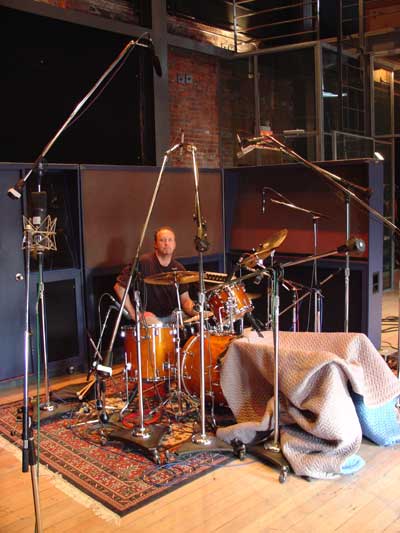Studio Drummer – The Inner Clock
*IF YOU DON’T HAVE A METRONOME GO OUT AND BUY ONE TOMORROW!*
You have to be great, not just ok with a click track.
It has to be second nature to the point where you don’t think very much about it while you’re playing. It will be difficult at first if you have not used one. You’ll even swear that the metronome is speeding up and slowing down because you keep falling off it. Of course it’s not. A metronome is one of those spotlights that shines a very bright light on your weaknesses as a player. So get one and start working out with it non-stop.
Some players like to play with drum loops which are perfect time wise. In my opinion this is a good thing to do but not at the exclusion of the very dry, very sterile metronome. The reason for this is when you go into a session you’re not going to have the groovy drum loop to play to. If you happen to have a drum loop on the session then lucky you but I wouldn’t count on it.
*GET ACCUSTOMED TO THE MONOTONY AND THE LIFELESSNESS OF A CLICK TRACK BECAUSE THAT IS WHAT YOU’LL GET ON A SESSION 90% OF THE TIME!*
A good example of this from my experience was playing on NBA Live for Electronic Arts. The producer wanted to start completely from the drums up. I was not playing with any other musicians and with no loops, just the click. He would tell me what he wanted part-wise and I played it to my maximum ability, energy and conviction. In a sense, it required me to in a sense visualize what the final product was going to be like and feel like. Needless to say, being Electronic Arts the final product was slamming!
New players to the click track experience will put it on and often think that the faster the bpm they set on the metronome the harder it will be to play to.
This is the opposite of the truth in most cases that is unless of course, you pin the click track to 250 beats per minute! No, the slower the click is the harder it is to stay aligned to it! Pick a tempo like 50 bpm and a feel with a lot of space in it that has quarter notes on the hi hat for example. Work out hard with these tempos. Why is it so damned hard you ask?
*IT’S FORCING YOU TO DEVELOP YOUR INNER CLOCK!*
The beauty of this development of the inner clock is that you begin to play in a live sense with the same kind of time because you’ve spent so much time understanding the nuances and knowing where you tend to rush or tend to drag with different feels. It also gives you the ability to sense not only when you’re rushing or dragging but how to compensate for the band when you feel the band rushing or dragging. It gives you the ability to be able to control a band in a time sense.






